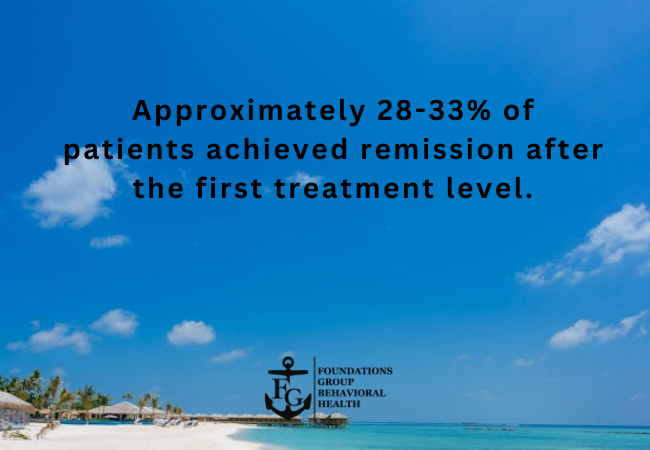For many individuals struggling with anxiety, depression, PTSD, ADHD, and other mental health disorders, medication can be a key part of their treatment plan. Psychiatric medications help regulate brain chemistry, mood, and symptoms, often improving emotional well-being and daily functioning. However, not all medications work the same for everyone, and it’s important to know the signs of whether your medication is helping—or if it needs to be adjusted.
At Foundations Group Behavioral Health, we specialize in Medication Management as part of our Psychiatric Day Treatment, Half-Day Treatment Programs, and Outpatient Mental Health Programs. Our team of professionals ensures that each patient receives the right medication at the right dosage, with continuous monitoring to maximize benefits and minimize side effects.
This guide will help you understand how to assess if your medication is working, signs that it may need adjustment, and what steps to take if it’s not effective.
How Long Does It Take for Psychiatric Medications to Work?
The effectiveness of mental health medications varies depending on the type of medication, your unique brain chemistry, and the condition being treated.
General Timeframes for Common Psychiatric Medications
- Antidepressants (SSRIs, SNRIs, MAOIs, Tricyclics) – Typically take 4 to 6 weeks to reach full effectiveness.
- Anti-Anxiety Medications (Benzodiazepines, Buspirone) – Some work immediately (like benzodiazepines), while others take several weeks.
- Mood Stabilizers (Lithium, Valproate, Lamotrigine) – Often take 2 to 4 weeks to show results.
- Antipsychotic Medications – Can take several days to weeks to stabilize symptoms.
- ADHD Medications (Stimulants, Non-Stimulants) – Stimulants work within hours, while non-stimulant options may take a few weeks.
If you don’t notice any improvement within the expected timeframe, it might be time to reassess your treatment plan with your doctor or mental health provider.
Signs Your Medication is Working
A medication is considered effective when it significantly reduces symptoms while maintaining manageable side effects. Some positive indicators that your medication is working include:
1. Your Symptoms Are Improving
- Mood stability – You feel less anxious, depressed, or emotionally overwhelmed.
- Improved focus and clarity – If treating ADHD, your ability to concentrate has increased.
- Reduced panic attacks or intrusive thoughts – If managing PTSD or anxiety, your symptoms are less frequent or intense.
2. You Feel More in Control of Your Emotions
- You react to stress more calmly and don’t feel as emotionally unstable.
- You recover from emotional distress faster than before.
3. Your Daily Functioning Has Improved
- You’re able to complete tasks, go to work, attend school, or maintain relationships more effectively.
- You feel more motivated and engaged in daily activities.
4. Side Effects Are Manageable
- All medications can have side effects, but they should not outweigh the benefits.
- If side effects are mild and improve over time, your body may just need time to adjust.
Signs Your Medication Is Not Working
If your medication isn’t effective, you may experience persistent symptoms or unwanted side effects that interfere with your well-being.
1. Your Symptoms Haven’t Improved (or Have Worsened)
- If you’ve been taking medication for the recommended time and see no improvement, it may not be the right fit.
- Some people feel worse after starting a new medication—this could indicate a need for adjustment or an alternative option.
2. Unmanageable Side Effects
- Severe drowsiness, dizziness, nausea, or weight gain/loss that disrupts your daily life.
- Increased anxiety, depression, or suicidal thoughts (this requires immediate medical attention).
- If side effects outweigh the benefits, you should discuss alternatives with your doctor.
3. Mood Swings, Emotional Numbness, or Feeling “Off”
- Some medications can cause emotional blunting, where you feel detached or emotionally flat.
- If you feel “numb” or unable to experience joy, the medication might not be the right match.
4. Increased Tolerance or Dependence
- Some medications (such as benzodiazepines) can lead to tolerance, requiring higher doses to maintain effectiveness.
- If you find yourself needing to take more medication than prescribed, consult your provider immediately.

What to Do If Your Medication Isn’t Working
1. Talk to Your Doctor or Psychiatrist
- Do not stop taking medication abruptly without consulting your healthcare provider—this can lead to withdrawal symptoms.
- Be honest about how you’re feeling, even if it’s difficult to discuss.
- Keep a medication journal to track changes in mood, side effects, and overall well-being.
2. Consider a Medication Adjustment
- Your doctor may suggest increasing the dosage, switching to a different medication, or combining medications for better results.
- Finding the right medication can take time, and adjustments are common.
3. Explore Therapy Alongside Medication
- Medication is often most effective when combined with therapy, such as:
- Cognitive Behavioral Therapy (CBT) – Helps change negative thought patterns.
- Dialectical Behavior Therapy (DBT) – Useful for emotional regulation.
- EMDR (Eye Movement Desensitization and Reprocessing) – Helps with trauma-related conditions.
4. Consider a Structured Mental Health Treatment Program
If medication alone isn’t providing relief, a comprehensive mental health program can offer additional support.
At Foundations Group Behavioral Health, we provide:
Psychiatric Day Treatment for Medication Management and Therapy
- Intensive daily support for individuals needing structured therapy and medication adjustments.
- Includes medication management, psychotherapy, and coping skills training.
Half-Day Treatment Program for Flexible Care
- A structured program offering therapy and medication monitoring while allowing individuals to maintain their daily responsibilities.
Outpatient Mental Health Program for Long-Term Support
- Weekly or biweekly therapy sessions to help manage symptoms, adjust medications, and develop healthy coping mechanisms.
When to Seek Immediate Help
If you experience severe reactions or dangerous side effects, seek immediate medical attention. Signs include:
- Suicidal thoughts or self-harm urges.
- Severe allergic reactions (swelling, difficulty breathing).
- Sudden mood swings, hallucinations, or paranoia.
- Serotonin syndrome symptoms (confusion, rapid heart rate, fever, muscle stiffness).
Conclusion
Medication can be life-changing, but it’s not a one-size-fits-all solution. Regular monitoring, therapy, and lifestyle changes all play a role in mental health recovery.
At Foundations Group Behavioral Health, we offer Medication Management within our Psychiatric Day Treatment, Half-Day Treatment Programs, and Outpatient Mental Health Programs to ensure that individuals receive the right treatment for their unique needs.
If you’re struggling with your current medication or need comprehensive mental health care, call us today at 888.685.9730 to explore treatment options that support your long-term well-being. Finding the right medication is a journey—let us help you navigate it.
FAQ on Mental Health Medication
How do I know if my mental health medication is working?
Your medication is likely working if:
- Your symptoms have improved (e.g., reduced anxiety, fewer mood swings, better focus).
- You feel more emotionally stable and in control.
- Your daily functioning has improved (e.g., work, relationships, self-care).
- Side effects are mild and manageable.
How long does it take for psychiatric medications to work?
- Antidepressants (SSRIs, SNRIs, MAOIs, Tricyclics) – 4 to 6 weeks.
- Anti-Anxiety Medications (Benzodiazepines, Buspirone) – Immediate to several weeks.
- Mood Stabilizers (Lithium, Valproate, Lamotrigine) – 2 to 4 weeks.
- Antipsychotic Medications – Days to weeks.
- ADHD Medications – Stimulants work within hours, non-stimulants take weeks.
What are the signs that my medication isn’t working?
- No improvement in symptoms after the expected timeframe.
- Unmanageable side effects (severe drowsiness, nausea, emotional numbness).
- Increased anxiety, depression, or suicidal thoughts (requires immediate medical attention).
- Feeling emotionally “off” or detached.
- Needing higher doses to feel the same effect (tolerance issues).
What should I do if my medication isn’t working?
- Do not stop taking it abruptly—this can cause withdrawal symptoms.
- Talk to your doctor about adjusting the dosage, switching medications, or adding therapy.
- Keep a medication journal to track symptoms and side effects.
Can therapy help if my medication isn’t enough?
Yes. Therapy often enhances the benefits of medication. Common approaches include:
- Cognitive Behavioral Therapy (CBT) – Helps change negative thought patterns.
- Dialectical Behavior Therapy (DBT) – Supports emotional regulation.
- EMDR Therapy – Addresses trauma-related symptoms.
- Psychiatric Day Treatment & Outpatient Mental Health Programs – Offer structured therapy alongside medication management.
When should I seek professional help for medication management?
- If you’re experiencing severe side effects or worsening symptoms.
- If medication isn’t helping after several weeks.
- If you need structured support, such as Psychiatric Day Treatment or Half-Day Treatment Programs.








